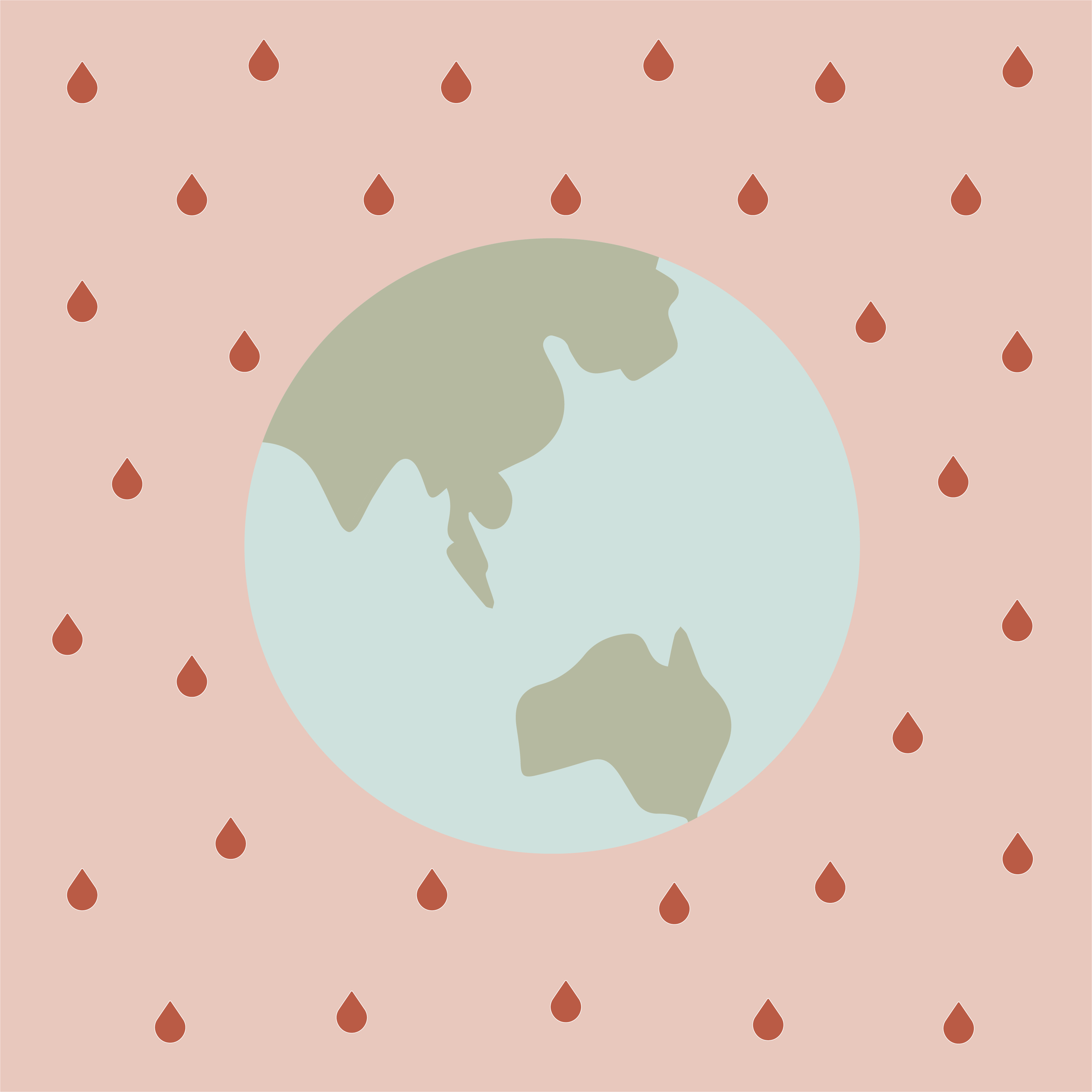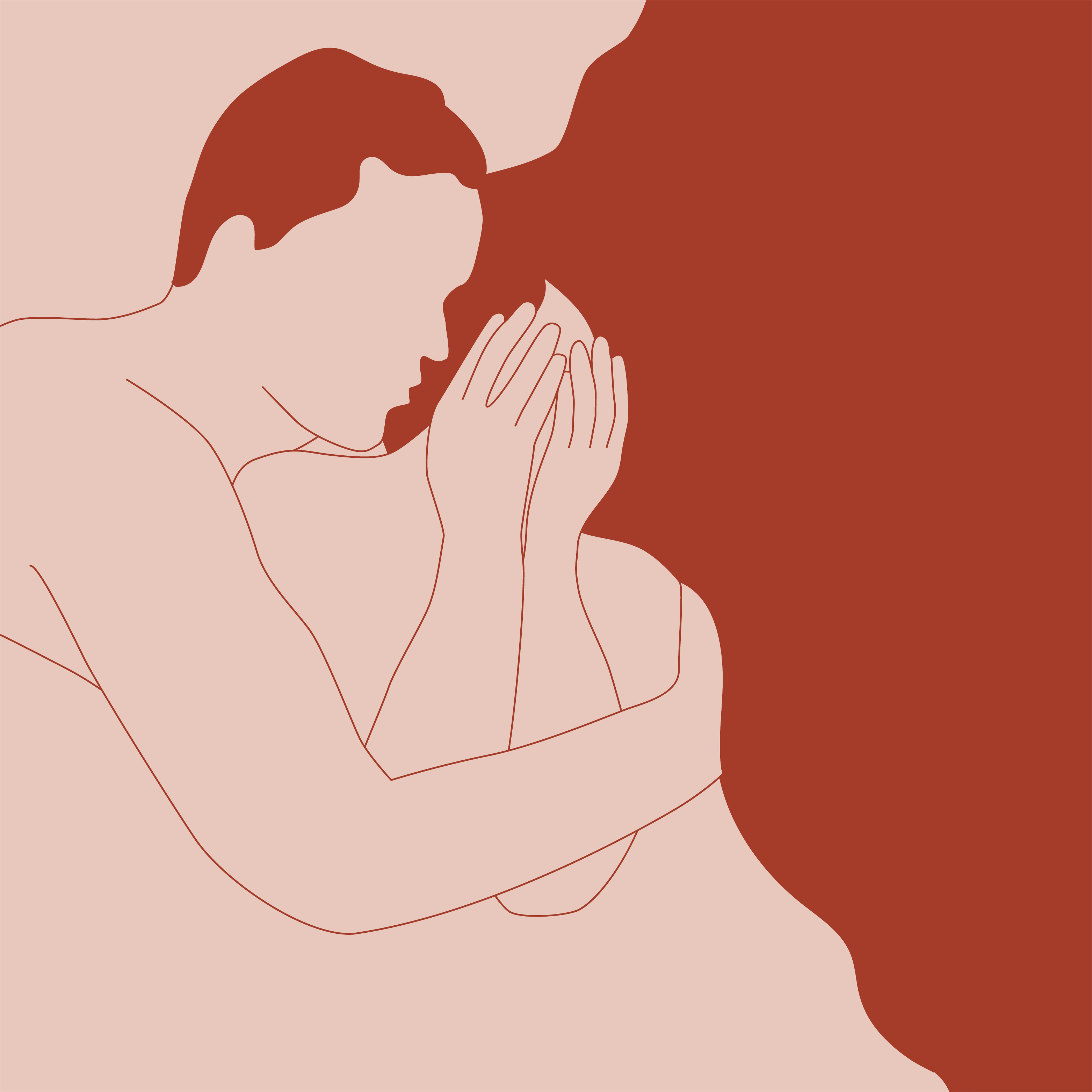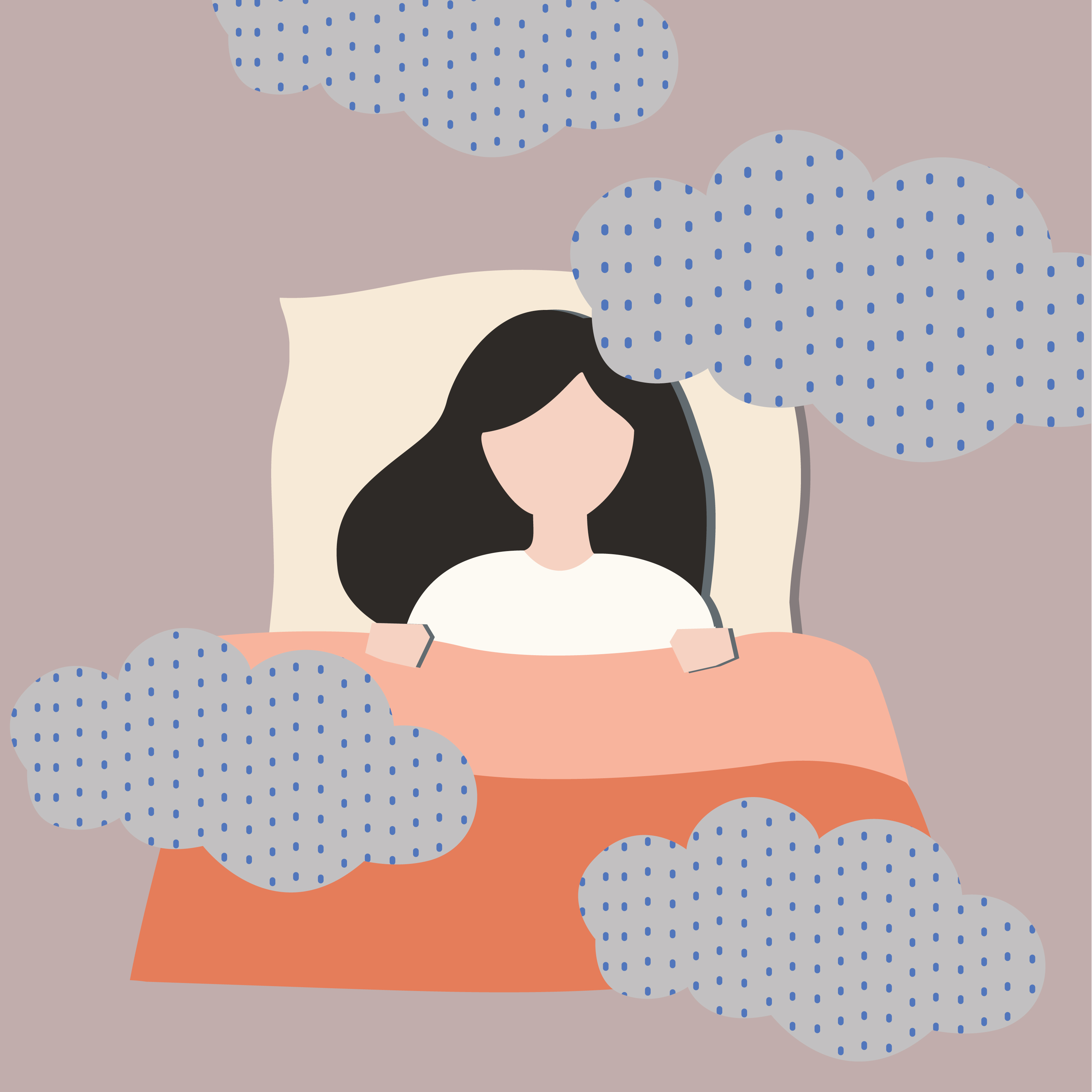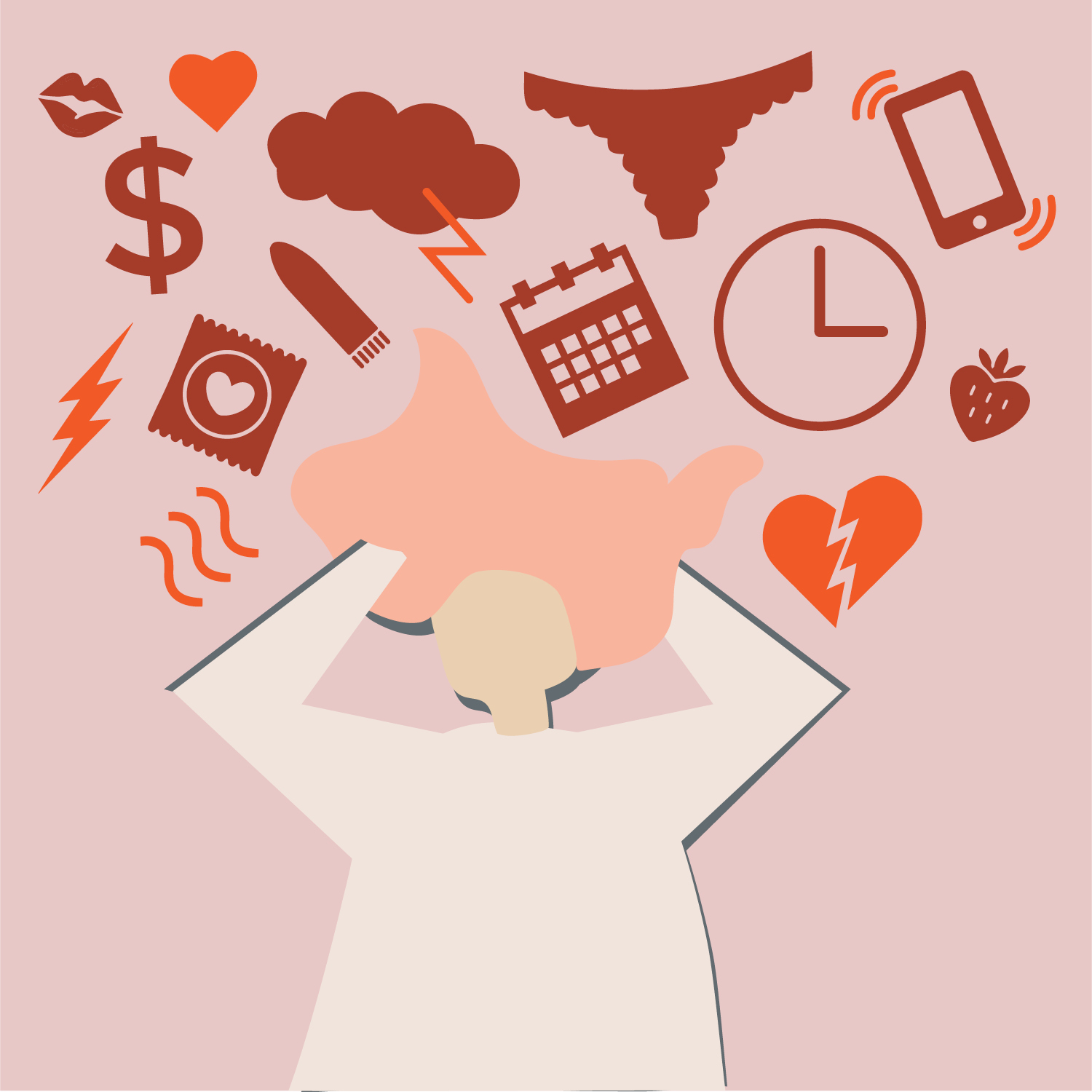Dec 02, 2016
WHAT IS PMS & HOW TO TREAT IT NATURALLY
Image: omghow
PMS (Premenstrual syndrome) for those who have experienced it can make you feel like you’re on a rollercoaster ride.
Your time of month becomes a time of frustration, anxiety, depression, fluctuating moods, fluid retention, breast tenderness, bloating, headaches, blended with disrupted sleep. More than 75% of women experience PMS each month, so you’re not alone.
This experience is due to the biological and chemical changes that take place during your menstrual cycle. Your body is made up of a complex hormonal system known as your endocrine system. PMS and irregularities in your menstrual cycle arise due to fluctuations within this hormonal system.
Chinese Medicine takes a holistic view of the body and menstrual cycles. Similar to the waxing and waning of the moon, the ebbs and flows, changes of season within nature, your body also has its own internal rhythm. When your internal rhythm becomes disrupted through experiences like lifestyle changes, stress, environmental toxins, consumption of processed foods and a lack of sleep, the balance of yin and yang loses its harmony within your body.
How to treat PMS naturally
Some things we can do to help ease the symptoms can be really simple. To say goodbye to PMS and help ease your symptoms here are some natural ways to help. Read on for some more on the science behind PMS.
1 // WELCOME TO THE ZEN DEN.
Yoga, meditation and breathing exercises can help balance your hormones, calm your mind and de- stress you.
2 // WE CAN ALL DO WITH AN ENDORPHIN HIT.
To maintain your internal rhythm keep your body moving with gentle exercises such as walking, qi gong and yoga. Aim for 20 minutes each day.
3 // MAGIC MOXA STICK.
Mugwort is a medicinal herb. Grab yourself a moxa stick and wave your magic wand over your belly at the time of your period. Moxa will help ease period pain, cramping and create a healthy menstrual flow. Other alternatives are a hot water bottle or heat pack to ease cramps and discomfort.
4 // MAGNESIUM POWER.
Foods that are high in magnesium such as dark leafy greens, nuts, avocados and magnesium powder help assist hormonal balance. We recommend a scoop of magnesium powder post-ovulation to help increase your progesterone levels and balance excess estrogen.
5 // YOUR BODY IS A TEMPLE.
Avoid foods high in sugar, coffee and alcohol. No processed or packaged foods. By cutting out all the crap, your body will start to love you again. Eating organic, whole foods and clean foods will help your body maintain homeostasis. Eating foods high in sugar spike your blood sugar levels, creating an increase in insulin levels which then affects your hormonal balance.
6 // ALTERNATIVE THERAPIES.
Acupuncture & Chinese medicine help reduce PMS. Acupuncture works on balancing your neuroendocrine axis – your hypothalamus, pituitary gland and adrenals (HPA axis). It helps to regulate and balance your hormonal (endocrine) system. Chinese herbs assist in balancing our entire menstrual cycle and creating a healthy menstrual flow.
7 // A CUP OF TEA.
A cup of tea dissolves everything. Herbal teas such as ginger, chamomile or rose petal tea can be great for warming or calming the body and reducing unsettled emotions and discomfort associated with PMS.
8 // FOOT BATH.
Relaxing and having a nice warm foot bath can help to relieve a headache or assist with relaxing the body and ensuring a more solid, sound sleep.
9 // BLOCK THAT ESTROGEN.
Eating foods high in fibre will help relieve constipation and detox your hormones out of the body. Flaxseed contains phytoestrogens that can help reduce PMS as it acts as an estrogen blocker. Cruciferous or Brassica vegetables are high in phytochemicals and as well as potassium can help minimise estrogen dominance. Try broccoli, cabbage, cauliflower, kale, swede, brussel sprouts and cress. Sweet potato is another goodie, it helps to assist the body to produce the right amount of hormones (particularly progesterone).
A QUICK LESSON IN FEMALE HORMONES
Our brain produces happy hormones called serotonin. This is the hormone that makes us feel good. Sometimes the brain doesn’t utilise the chemical neuro-transmitter serotonin which can affect our moods. When levels are low depression and even anxiety can occur. Research has shown that low levels of serotonin can be the result of a sensitive reaction to changes in estrogen and progesterone. For this very reason you can feel flat, depressed or anxious around the time of your period.
After ovulation our adrenal gland produces a chemical called aldosterone (this is when the ovaries release a mature egg for possible fertilisation). This chemical aldosterone can contribute to PMS symptoms such as headaches, water retention and breast tenderness. Our body produces another chemical hormone called endorphins. Endorphins mask pain and are released when we exercise. Sometimes painful periods, PMS and depression can occur when our body doesn’t produce enough endorphins. This is why it can be important for some to exercise during their period.
Our body produces cells called prostaglandins. Prostaglandins help regulate our menstrual cycle, ovulation and induction of labour. Prostaglandins are released at the time of our period; they help break down the uterine lining and cause muscular contraction. Over production of prostaglandins can cause painful periods, cramping, headaches and vomiting. Evening primrose oil can help to reduce overproduction of prostaglandins, especially if you have endometriosis.
So when it comes to your time of month don’t just settle in with the pain, do the very best for you. Take active steps to make it as pain-free and pleasant as it possibly can be! Why not use the new year as a fresh start.
Author: Dr Amanda Waaldyk from Angea Acupuncture & Yoga
Amanda is the founder of Angea Acupuncture & Yoga. A Dr of Chinese Medicine, Acupuncture and Fertility, her passion is to help clients create their inner goddess and fertility. Amanda assists women to get in touch with their bodies and prepare for the journey into motherhood – she loves seeing her clients with beautiful growing bellies!
WHAT IS PMS & HOW TO TREAT IT NATURALLY
Blogs

EXPLORING PERIOD CARE IN CULTURES AROUND THE WORLD
Our TOM Talks panelist Sabina McKenna explores how different cultures around the world approach period care.

STOP APOLOGISING FOR HAVING YOUR PERIOD
Our TOM Talks panelist Mel Mason talks about the importance of not apologising for having your period.

STRESSED? NOT SLEEPING? TRYING TO CONCEIVE?
TOM Talk's panelist Georgia Hartmann discussed the links between stress, sleep and fertility.

STRESS AND HOW IT AFFECTS YOUR SEX DRIVE
Certified sex coach Georgia Grace is here to unpack the link between stress and sex.
Products